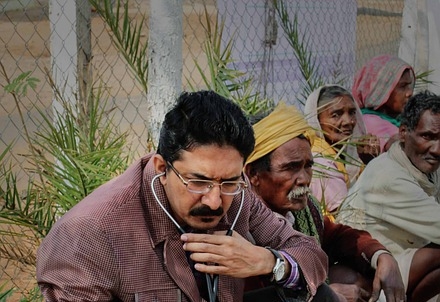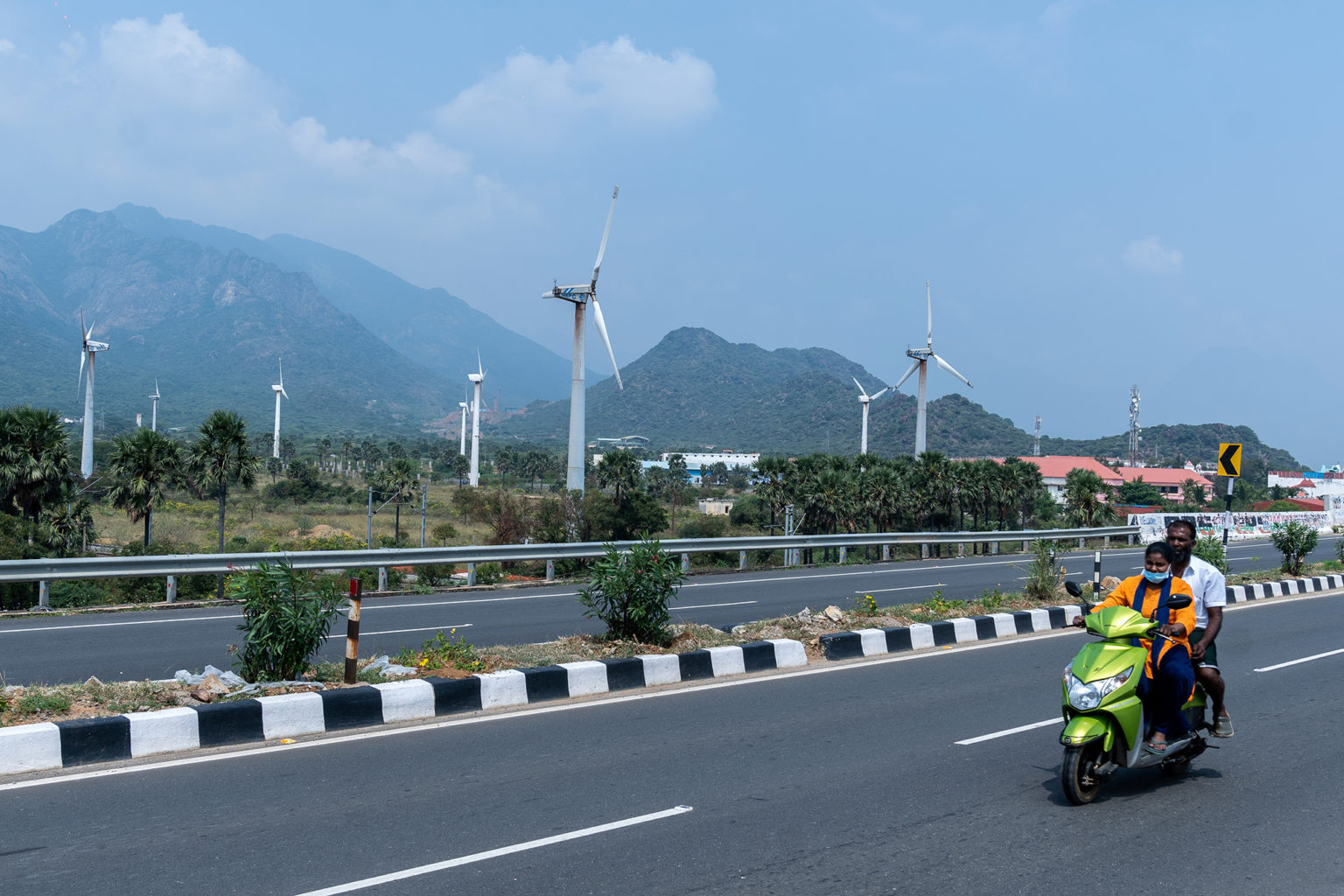Twelve years ago, I wrote an article with the title, "Nehru is out, Gandhi is in". I had then just read John Rodden's book, The Politics of Literary Reputation, which analysed the complicated 'after-lives' of the writer and polemicist, George Orwell. Following Rodden, I was prompted to investigate the posthumous reputations of the greatest of modern Indians. These, I argued, were a sharp study in contrast. Gandhi's ideas, once dismissed as reactionary and faddist by progressive intellectuals, were now the object of respectful, even reverential, study by the most esteemed of our political scientists. But Nehru, who in his lifetime had been so greatly admired by the thinking classes, had been relegated to the dung-heap. He was being attacked from left and right; where he once defined what it meant to be an Indian, now it appeared that 'the task of building a new India is defined negatively, in terms of the repudiation of the economic and social philosophy of Jawaharlal Nehru'.
I am a historian who usually stays well clear of prophecy. But back then, in 1992, I wrote that today few other than the career chamchas are willing to defend [Nehru], and fewer still to understand him. Yet I had no doubt that in time Nehru's reputation will slowly climb upwards, without ever reaching the high point of the 1950s. My prediction has indeed come true. The rehabilitation of Nehru has begun, albeit from the most unexpected of directions.
The first sign that Jawaharlal Nehru was becoming respectable once more came from a man who, all his political life, has resolutely opposed what Nehru stood for - Lal Krishna Advani. Shortly after 9/11, Advani visited the United States of America. Speaking to an audience in California, he praised Nehru for helping nurture the idea and institutions of democracy in India.
The first sign that Jawaharlal Nehru was becoming respectable once more came from a man who, all his political life, has resolutely opposed what Nehru stood for - Lal Krishna Advani.
![]() At the time, I thought the praise of Nehru was merely politic. For the end of the Cold War, and still more the rise of terrorism, had made Americans more appreciative than ever before of the merits of Indian democracy. And with New Delhi now cosying up to Washington, it made sense to contrast the persistence of democracy in India with the persistence of absolutism in the rest of the post-colonial world (not least in our neighbour, Pakistan). Now Advani's own guru, M.S. Golwalkar, was not particularly known for his love of democracy. But if it was democracy which America wanted, and if it was democracy which India had, then one could scarcely avoid giving some credit to the man who led that democracy, democratically, for a full seventeen years.
At the time, I thought the praise of Nehru was merely politic. For the end of the Cold War, and still more the rise of terrorism, had made Americans more appreciative than ever before of the merits of Indian democracy. And with New Delhi now cosying up to Washington, it made sense to contrast the persistence of democracy in India with the persistence of absolutism in the rest of the post-colonial world (not least in our neighbour, Pakistan). Now Advani's own guru, M.S. Golwalkar, was not particularly known for his love of democracy. But if it was democracy which America wanted, and if it was democracy which India had, then one could scarcely avoid giving some credit to the man who led that democracy, democratically, for a full seventeen years.
Soon, however, it appeared that the Bharatiya Janata Party's reassessment of Nehru was not for foreign consumption alone. At a meeting of the national executive of the party, the two main leaders, Atal Bihari Vajpayee and Advani, were given the titles of vikas purush and lauh purush respectively. These titles were clearly derivative. The BJP's spin machine, in other words, was seeking to re-fashion their two leaders in the image of the great Congress duumvirate of Jawaharlal Nehru and Vallabhbhai Patel, the first known for his vigorous pursuit of economic and social development, the second for his resolute character, his iron will. It was, of course, that duumvirate, working as a team, that united, integrated and built modern India.
By this time the elections were drawing closer. Now Advani tactfully retreated into the background, while the BJP sought to recast the polls as a presidential contest: on the one side their tried and tested man, Vajpayee, on the other side an unknown question mark. The smoothest of their spin doctors, Pramod Mahajan, announced that Vajpayee's stature was unchallenged and unmatched - indeed, he said, no leader since Jawaharlal Nehru had enjoyed this kind of country-wide, cross-class and cross-regional appeal.
Pramod Mahajan never knew Nehru. But Vajpayee did. One does not know whether he would go along with being anointed a Nehru for our times. At any rate, he did not seek to make the comparison himself. But others would continue to do so. In his rath yatra across India, Advani several times compared the National Democratic Alliance government to the first government of independent India, which held office between 1946 and 1952. That government was dominated by the Congress, but it had within its fold representatives of other parties. And it had Nehru as prime minister, with Vallabhbhai Patel as his deputy. Thus Advani suggested that we see himself as Patel, Vajpayee as Nehru, and (most strikingly) the BJP as the Congress.
This was artful propaganda, whose roots lay equally in realpolitik and in a long-standing inferiority complex. For from 1947 to 1977, the Congress was the natural party of governance, in the Centre as well as in the states. For a full thirty years, it dominated the political landscape of India. But it now appeared - and not just to its adversaries - to have fallen into a deep and possibly terminal decline. The space it once occupied, suggested Advani and his ilk, would henceforth be occupied by the BJP.
This bold - one might say even brazen - act of appropriation was also informed by a sense of inadequacy. For men like Advani have long wanted to share in the cosmopolitan sophistication of Jawaharlal Nehru and his daughter, Indira Gandhi. They were world leaders, taken seriously in Washington and Moscow and other such places. But they were also as much at ease with musicians and scientists as with politicians and diplomats. The likes of Yehudi Menuhin and Andre Malraux wished to be seen with, and photographed with, Jawaharlal Nehru. That is the kind of status and stature that the leaders of the BJP aspire to. That is why they cling so desperately to the only credible intellectual, black, brown, or white, who is willing to share a dais with them - V.S. Naipaul. But try as they will, there remains a disconnection between their political power and their social status. They might rule Delhi, and India, but the intellectuals of Delhi and India, not to speak of the intellectuals of Paris and London, still see them as essentially a party of behenjis and banias.
In seeking to present themselves as democratic, respectable, and (most implausible of all) intellectual, the BJP allied themselves with the memory and legacy of a man they once bitterly opposed. As it happened, it didn't work, and they lost the elections. There is little doubt that the party, and parivar, will now go back to their old habits of vilifying Nehru, laying at his feet the responsibility for all that is wrong with Mother India.
While he will never again acquire the god-like halo he enjoyed in the Fifties, we will at
least come to acknowledge that Nehru was not just India's first prime minister, but also and by some distance, its finest.
![]() But this time it won't work. For the more the BJP returns to its true self, the more India, and the world, will be able to set Nehru's inclusive vision against the parochialism of his successors. From other directions, Nehru's emphasis on scientific education will be seen as laying the foundation of the software boom, while the fact that yet another general election passed off relatively peaceably will be seen as proof of his wisdom in taking his country along the democratic route.
But this time it won't work. For the more the BJP returns to its true self, the more India, and the world, will be able to set Nehru's inclusive vision against the parochialism of his successors. From other directions, Nehru's emphasis on scientific education will be seen as laying the foundation of the software boom, while the fact that yet another general election passed off relatively peaceably will be seen as proof of his wisdom in taking his country along the democratic route.
This rehabilitation of Nehru's reputation shall be further accelerated by Sonia Gandhi's extraordinary decision not to assume the office of prime minister. For her husband's and mother-in-law's errors were invariably ascribed to the patriarch - even if he had nothing to do with them. Now, with the BJP out of power, and no Nehru-Gandhi in power, it is finally possible to assess our first prime minister with the necessary detachment. We can more rationally judge his contributions - democracy, secularism, and the like - as well as his failures - such as the under-estimation of China, and the lack of proper emphasis on primary education. As this task proceeds, let me wager another prediction. It is this - that while he will never again acquire the god-like halo he enjoyed in the Fifties, we will at least come to acknowledge that Nehru was not just India's first prime minister, but also and by some distance, its finest.























